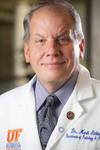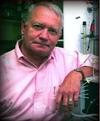Research Terms
Industries
This Lactobacillus supplement prevents Type 1 diabetes by preventing the onset of autoimmunity that leads to Type 1 diabetes. Type 1 diabetes represents approximately five to ten percent of all human diabetes and the Centers for Disease Control and Prevention estimate that between 500,000 to one million Americans are living with the disease. According to the Food and Agricultural Organization, probiotics are live microorganisms which, when administered in adequate amounts, confer a health benefit on the host. In recent years, much interest has been shown in the use of the lactic acid bacteria Lactobacilli as probiotic organisms and their potential for disease prevention in both humans and animals. Researchers at the University of Florida have developed unique probiotic compositions for alleviating Type 1 diabetes comprised of an effective amount of one or more Lactobacillus isolates.
Probiotic compositions as food additives that are useful in preventing or delaying the development of Type 1 diabetes
Type 1 diabetes, also known as immune-mediated, juvenile, or insulin-dependent diabetes mellitus, is a disease of children and adults for which there is no adequate means for prevention or cure. Lactic acid bacteria and bifidobacteria are the most common types of microbes used as probiotics and have emerged as two dominant groups negatively correlated with the onset of type 1 diabetes. University of Florida researchers have developed probiotic compositions consisting of Lactobacillus isolates that can be used as food additives (probiotics) to prevent or slow the development of type 1 diabetes.
This new class of probiotic bacteria can protect predisposed children from developing neurodevelopmental disorders, including autism spectrum disorder (ASD). Neurodevelopmental disorders are a group of conditions affecting the development and function of the brain. Autism spectrum disorder, characterized by social difficulties and restricted and repetitive behaviors and interests, affects 1-2% of the population and is one of the most common neurodevelopmental disorders (NDs). NDs can severely affect a person’s quality of life, and studies estimate the lifetime social cost of ASD alone may grow to nearly $15 trillion by 2029. However, there is no available cure or treatment for ASD on the market. Growing evidence highlights certain bacteria in the human gut may play a role in the development of neurodevelopmental disorders. Promoting the growth of beneficial gut bacteria in children may therefore prevent the development of ASD and other NDs.
Researchers at the University of Florida have discovered a class of probiotic bacteria that can protect children from developing autism spectrum disorder (ASD). These bacteria are present at lower levels in infants who are treated with antibiotics and then go on to be diagnosed with ASD later in life. Administering beneficial bacteria to infants as a probiotic can decrease the risk of developing NDs. Additionally, researchers have engineered an amoxicillin-resistant strain able to survive antibiotic treatment. Therefore, these probiotics supplements have the potential to prevent ASD as well as other neurodevelopmental disorders.
Probiotic supplement to prevent neurodevelopmental disorders in children
Children prone to developing neurodevelopmental disorders (NDs) have fewer gut bacteria producing equol, an anti-inflammatory metabolite. Equol-producing gut bacteria are also depleted in infants after they are treated with antibiotics, such as in the case of ear infections, which may increase their risk of developing NDs. Researchers at the University of Florida have developed an antibiotic-resistant strain of equol-producing bacteria that can supplement existing gut bacteria to protect children from developing neurodevelopmental disorders, such as autism spectrum disorder (ASD).



































































































































































































